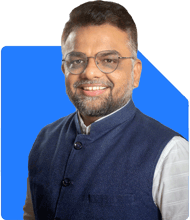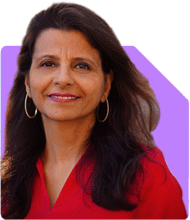Ramalingam Kalirajan |2770 Answers |Ask -Follow
Mutual Funds, Financial Planning Expert - Answered on May 09, 2024
He has an MBA in finance from the University of Madras and is a certified financial planner.
He is the director and chief financial planner at Holistic Investment, a Chennai-based firm that offers financial planning and wealth management advice.... more

I have 70,00000 cash,where should I invest to get 50,000 per month?
Consider allocating a portion of your cash towards fixed income options like fixed deposits, corporate bonds, and debt mutual funds. These provide stable returns with lower risk.
Additionally, diversify your portfolio by investing in dividend-paying stocks or equity mutual funds. While they carry more risk, they offer the potential for higher returns over the long term.
Annuities can also be an option, providing a guaranteed income stream for a certain period or life. However, they might not offer the flexibility and growth potential of other investments.
To determine the exact allocation and investment strategy, consult with a Certified Financial Planner. They can assess your risk tolerance, financial goals, and investment horizon to tailor a plan that suits your needs.
Remember to regularly review and adjust your investment portfolio based on market conditions and changes in your financial situation.
By combining conservative and growth-oriented investments wisely, you can generate a steady income stream to support your lifestyle and financial goals.
Best Regards,
K. Ramalingam, MBA, CFP,
Chief Financial Planner,
www.holisticinvestment.in
You may like to see similar questions and answers below
Vivek Shah |60 Answers |Ask -Follow
Financial Planner - Answered on Jun 19, 2023
Ramalingam Kalirajan |2770 Answers |Ask -Follow
Mutual Funds, Financial Planning Expert - Answered on Apr 23, 2024
Ramalingam Kalirajan |2770 Answers |Ask -Follow
Mutual Funds, Financial Planning Expert - Answered on May 17, 2024
Ramalingam Kalirajan |2770 Answers |Ask -Follow
Mutual Funds, Financial Planning Expert - Answered on Apr 29, 2024
Ramalingam Kalirajan |2770 Answers |Ask -Follow
Mutual Funds, Financial Planning Expert - Answered on May 20, 2024
Patrick Dsouza |275 Answers |Ask -Follow
CAT, XAT, CMAT, CET Expert - Answered on May 20, 2024
Patrick Dsouza |275 Answers |Ask -Follow
CAT, XAT, CMAT, CET Expert - Answered on May 20, 2024
Patrick Dsouza |275 Answers |Ask -Follow
CAT, XAT, CMAT, CET Expert - Answered on May 20, 2024
Patrick Dsouza |275 Answers |Ask -Follow
CAT, XAT, CMAT, CET Expert - Answered on May 20, 2024
Patrick Dsouza |275 Answers |Ask -Follow
CAT, XAT, CMAT, CET Expert - Answered on May 20, 2024
Komal Jethmalani |311 Answers |Ask -Follow
Dietician, Diabetes Expert - Answered on May 20, 2024
Komal Jethmalani |311 Answers |Ask -Follow
Dietician, Diabetes Expert - Answered on May 20, 2024
Komal Jethmalani |311 Answers |Ask -Follow
Dietician, Diabetes Expert - Answered on May 20, 2024
Ramalingam Kalirajan |2770 Answers |Ask -Follow
Mutual Funds, Financial Planning Expert - Answered on May 20, 2024
Ramalingam Kalirajan |2770 Answers |Ask -Follow
Mutual Funds, Financial Planning Expert - Answered on May 20, 2024























